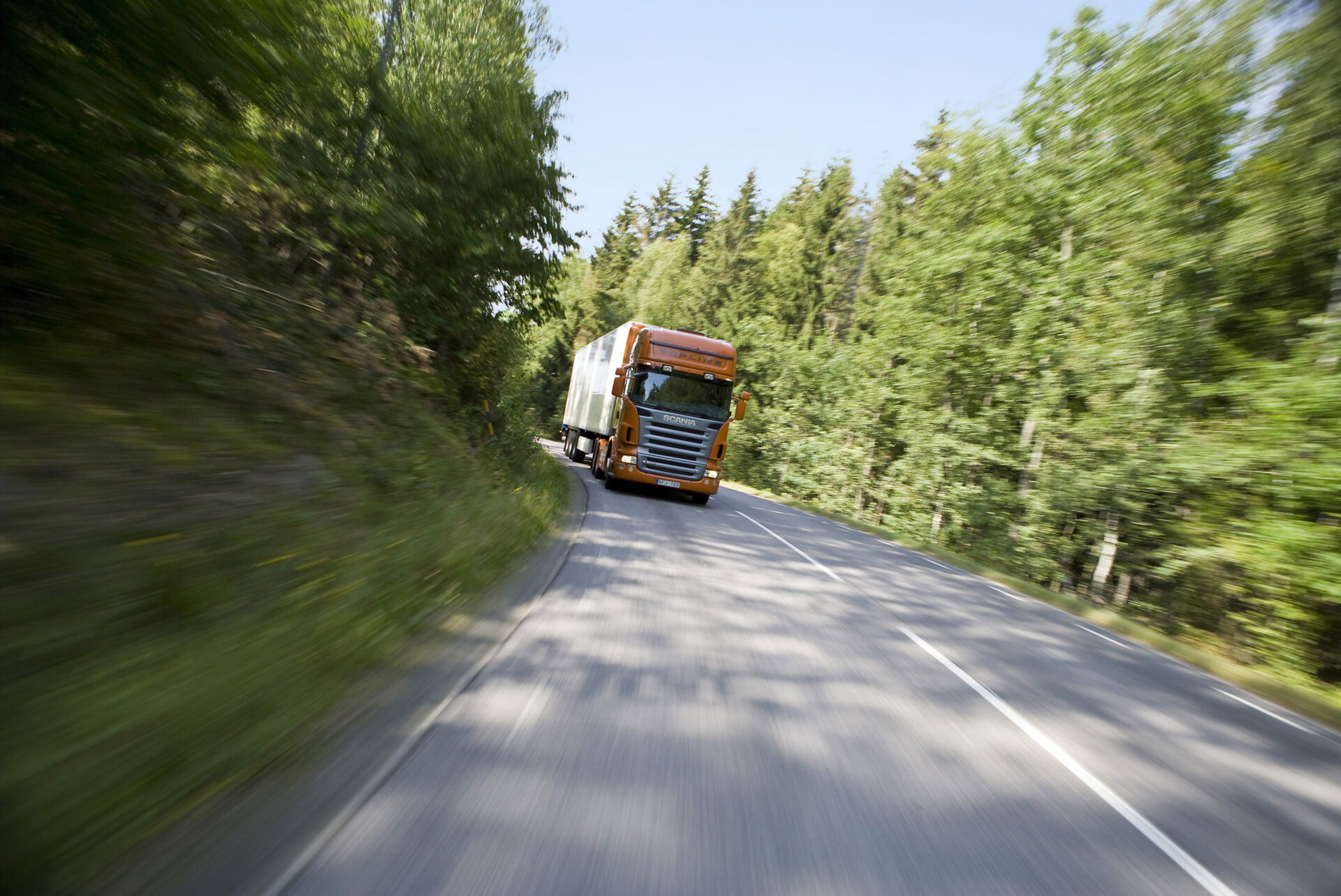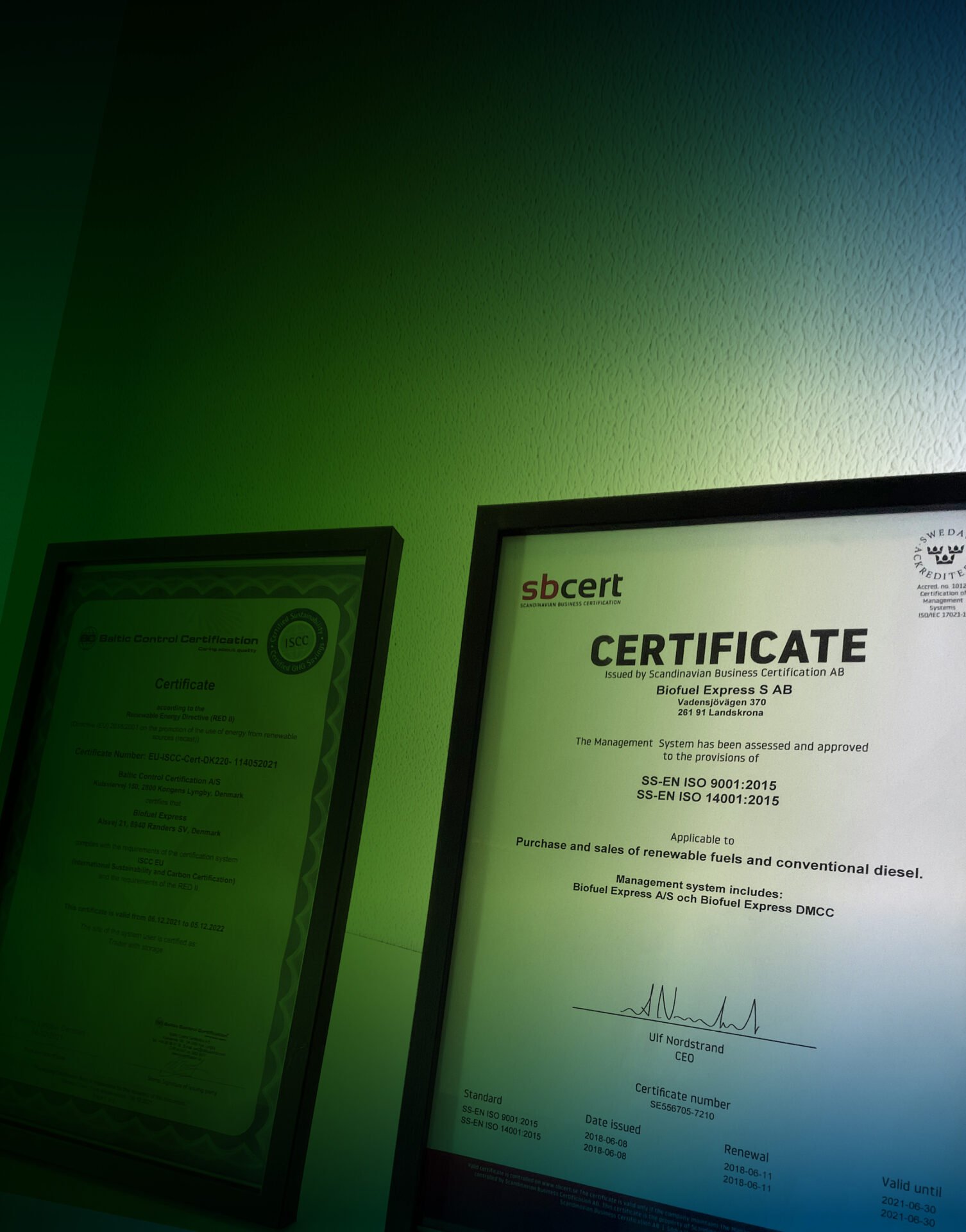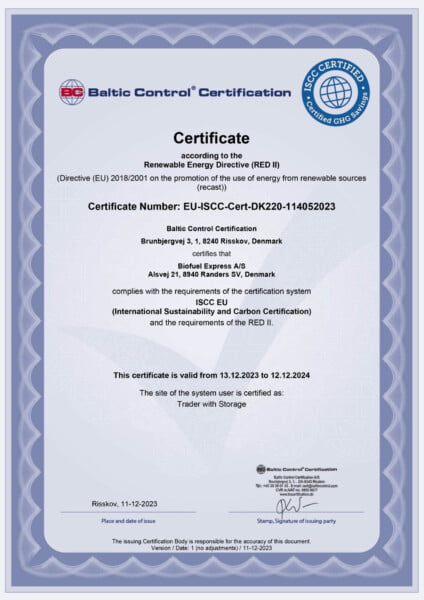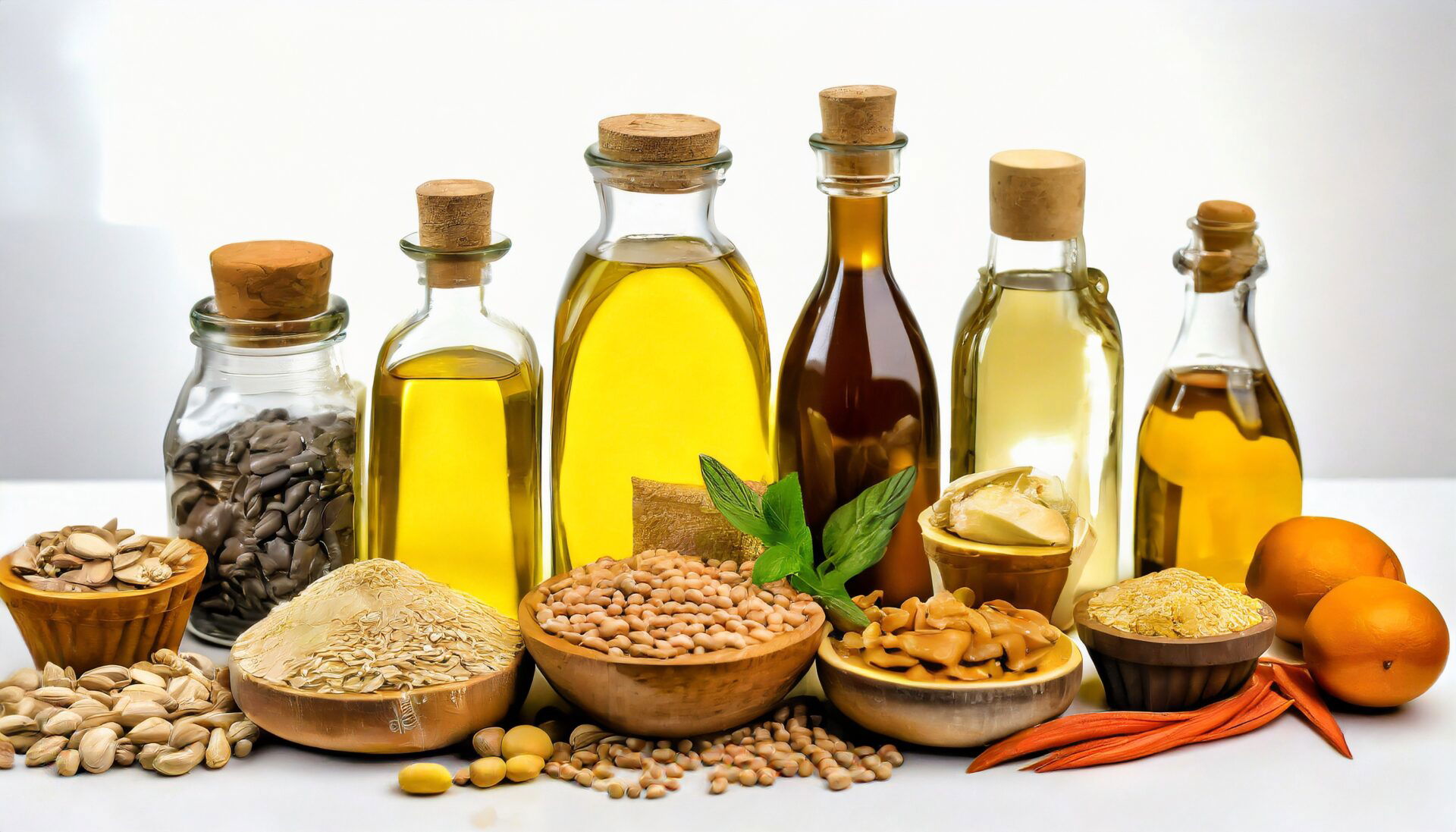
To ensure a safe transition to a fossil-free operation, it is essential for us that everything is certified in terms of traceability and not least provide valid documentation that creates insight into the climate impact of the products. Our fuels are produced from sustainable resources, where they are regenerated in a short time, rather than fossil fuels that spend millions of years when it comes to the carbon cycle.
In this regard, we have also created Biofuel Express Insight, as an extra service for our customers, where it is possible to gain even greater insight into your company’s fuel consumption through e.g. sustainability reporting, an overview of your CO2 reduction, the exact raw materials that are in your fuel, and documentation that you can use to create transparency for your customers.


Biofuel Express is ISO-certified in relations to our quality and environmental management systems, which shows our ongoing efforts and strategic focus on the environment and quality assurance of processes.
Reliability and sustainability are key factors for us. We are ISO-certified according to ISO 9001 and ISO 14001, which means that our customers and partners can be sure that we systematically improve our quality and focus on a sustainable environment and ensure that we meet our customers’ requirements.
ISO 9001 is an international standard for quality management systems, which means that we actively work continuously to improve our company and processes as well as ensure the quality of our services and products.
ISO 14001 is an international standard for environmental management systems, which ensures that we continuously work to reduce our negative environmental impact and comply with applicable legal requirements.
The certification was performed by Scandinavian Business Certification in accordance with SS-EN ISO 9001: 2015 and SS EN ISO 14001: 2015 standards.
Biofuel Express’ products are ISCC-certified, which is one of the World’s leading certification systems, which purpose is to create transparency around sustainable solutions, so that the raw materials are completely traceable throughout the supply chain.
It can vary how much CO2 there is reduced, as it depends on the composition of the raw materials, as well as which product it is.
B100 Biodiesel RME reduces up to 70%, while the HVO100 Renewable Diesel reduces by up to 90% compared to regular diesel, which is ISCC certified.
The reason why the fuels do not reduce 100% is that in some places in the production processes, when you look at the whole from cradle-to-grave principle, solutions that are not 100% CO2-neutral are included as well.
It is especially in the distribution and transportation processes, where there may be a greater CO2 load, e.g. at the collection of the raw materials, or in connection with the harvesting and sowing of the rapeseed to B100. However, continuous work is being done to reduce these CO2 emissions in order to make the fuels even more climate-friendly and achieve an even greater CO2 reduction.


Our raw materials consist mainly of waste and residual products. B100 is a by-product from rapeseed production, where approx. half of the rapeseed is produced for animal feed. HVO100 consists primarily of residues from the meat and fish industry, but also of e.g. used cooking oil or residues and waste from the preparation of vegetable oil. For HVO is it equivalent to 90% of the fuel coming from residues and waste.
It is particularly important for us not to compromise on the quality and origin of the materials, and therefore it must not conflict with food production, deforestation or burden the climate and environment.
Biofuel Express Insight presents easy overview of fuel consumption, full sustainability transparency and documentation with just a few clicks.
Its purpose is to provide full insight and thereby work as a tool to reduce their climate impact, as well as document the achieved CO2 savings. In this way, the customers can meet the increased environment and climate requirements of today and in the future:
